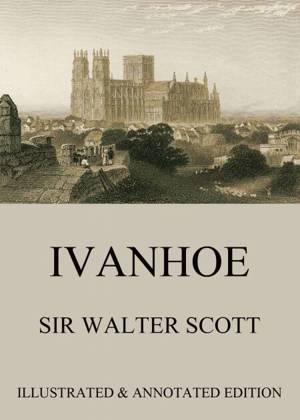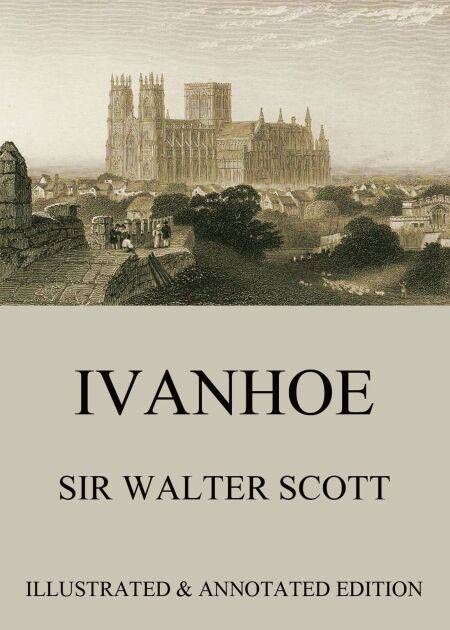
- Afhalen na 1 uur in een winkel met voorraad
- Gratis thuislevering in België vanaf € 30
- Ruim aanbod met 7 miljoen producten
- Afhalen na 1 uur in een winkel met voorraad
- Gratis thuislevering in België vanaf € 30
- Ruim aanbod met 7 miljoen producten
Zoeken
Omschrijving
The period of "Ivanhoe" is a few months subsequent to "The Talisman." Richard I has abandoned his Crusade, and, after an incarceration in an Austrian prison returns to his English throne to find plots against him headed by his brother John, and also a general state of unrest. Normans and Saxons still quarrel, and the story as a whole gives an admirable picture of feudal times.
Ivanhoe is the only son of Cedric the Saxon, and has been disinherited by his father on account of his love for Cedric's ward, the Lady Rowena. lie thereupon goes with King Richard to Palestine and wins renown in the Crusade. He returns to England disguised as a Palmer. Meanwhile his father maintains the ancient Saxon state at his manor of Rotherwood, at odds with the Norman "interlopers." Cedric therefore accords but grudging hospitality to a Norman knight, Sir Brian de Bois-Guilbert, when the latter seeks shelter from a storm, being guided thereto by a pilgrim. During the evening repast, Lady Rowena inquires news of the Crusade and is informed that Ivanhoe has gained fame and the favor of the King. Bois-Guilbert thereupon boasts that he himself would like to meet him at a pending tournament; at which the pilgrim takes up the gage forthe knight ...
Ivanhoe is the only son of Cedric the Saxon, and has been disinherited by his father on account of his love for Cedric's ward, the Lady Rowena. lie thereupon goes with King Richard to Palestine and wins renown in the Crusade. He returns to England disguised as a Palmer. Meanwhile his father maintains the ancient Saxon state at his manor of Rotherwood, at odds with the Norman "interlopers." Cedric therefore accords but grudging hospitality to a Norman knight, Sir Brian de Bois-Guilbert, when the latter seeks shelter from a storm, being guided thereto by a pilgrim. During the evening repast, Lady Rowena inquires news of the Crusade and is informed that Ivanhoe has gained fame and the favor of the King. Bois-Guilbert thereupon boasts that he himself would like to meet him at a pending tournament; at which the pilgrim takes up the gage forthe knight ...
Specificaties
Betrokkenen
- Auteur(s):
- Illustrator(s):
- Uitgeverij:
Inhoud
- Aantal bladzijden:
- 613
- Taal:
- Engels
Eigenschappen
- Productcode (EAN):
- 9783849645250
- Verschijningsdatum:
- 20/07/2014
- Uitvoering:
- E-book
- Beveiligd met:
- Digital watermarking
- Formaat:
- ePub

Alleen bij Standaard Boekhandel
Beoordelingen
We publiceren alleen reviews die voldoen aan de voorwaarden voor reviews. Bekijk onze voorwaarden voor reviews.








